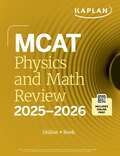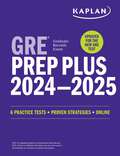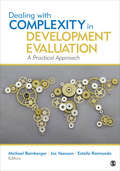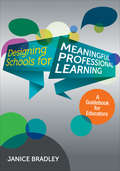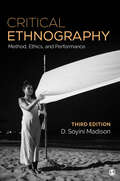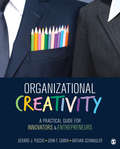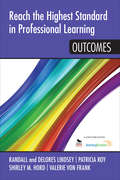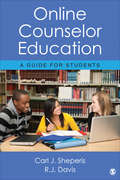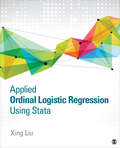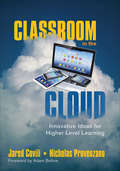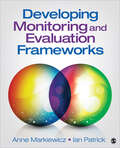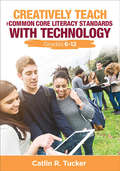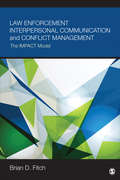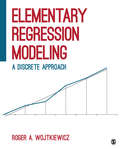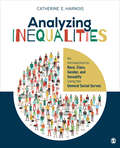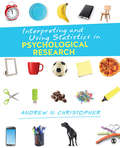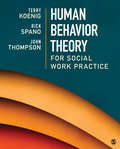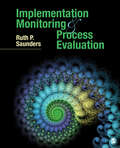- Table View
- List View
MCAT Physics and Math Review 2025-2026: Online + Book (Kaplan Test Prep)
by Kaplan Test PrepKaplan&’s MCAT Physics and Math Review 2024-2025 offers an expert study plan, detailed subject review, and hundreds of online and in-book practice questions—all authored by the experts behind the MCAT prep course that has helped more people get into medical school than all other major courses combined.Prepping for the MCAT is a true challenge. Kaplan can be your partner along the way—offering guidance on where to focus your efforts and how to organize your review. This book has been updated to match the AAMC&’s guidelines precisely—no more worrying about whether your MCAT review is comprehensive!The Most PracticeMore than 350 questions in the book and access to even more online—more practice than any other MCAT physics and math book on the market.The Best PracticeComprehensive physics and math subject review is written by top-rated, award-winning Kaplan instructors.Full-color, 3-D illustrations, charts, graphs and diagrams help turn even the most complex science into easy-to-visualize concepts.All material is vetted by editors with advanced science degrees and by a medical doctor.Online resources, including a full-length practice test, help you practice in the same computer-based format you&’ll see on Test Day.Expert GuidanceHigh-yield badges throughout the book identify the topics most frequently tested by the AAMC.We know the test: The Kaplan MCAT team has spent years studying every MCAT-related document available. Kaplan&’s expert psychometricians ensure our practice questions and study materials are true to the test.
GRE Prep Plus 2024-2025 - Updated for the New GRE: 6 Practice Tests + Live Classes + Online Question Bank and Video Explanations (Kaplan Test Prep)
by Kaplan Test PrepAchieve your professional goals with a higher GRE score. Kaplan's GRE Prep Plus 2024-2025 prepares you for success on the GRE with expert strategies, essential content review, and six realistic full-length practice tests. And unlike other prep books, purchasing GRE Prep Plus 2024-2025 grants you access to live online class sessions every week on the Kaplan GRE Channel. We&’re so certain that GRE Prep Plus 2024-2025 offers all the knowledge you need to excel at the GRE that we guarantee it: After studying with the online resources and book, you'll score higher on the GRE—or you'll get your money back.The Best Practice Five full-length online tests help you practice in the same computer-based format you'll see on test day. One full-length practice test included in the book for when online is not an option. More than 1,500 questions with detailed explanations. Video explanations of selected questions. 500-question online Qbank that lets you select problems by topic and difficulty and customize your practice. Chapters on each GRE question type and math skill, with practice sets for each. Questions have been reviewed, revised, and updated by Kaplan's expert faculty. Expert GuidanceAttend live class sessions with Kaplan GRE experts every week on the GRE Channel Online study-planning tool helps you target your prep no matter how much time you have before the test. We know the test: Our learning engineers have put tens of thousands of hours into studying the GRE, and we use real data to design the most effective strategies and study plans. Kaplan's books and practice questions are written by veteran teachers who know students—every explanation is written to help you learn. We invented test prep—Kaplan (kaptest.com) has been helping students prepare for the tests for over 80 years and we offer some of the best-selling books on GRE prep, GED, SAT, and ACT test prep, MCAT study guides, and more. Want to boost your studies with even more online practice and in-depth GRE math and verbal workbooks? Try Kaplan's GRE Complete 2024-2025.
Dealing With Complexity in Development Evaluation: A Practical Approach
by Michael Bamberger Jos Vaessen Estelle RaimondoRecognizing that complexity calls for innovative, conceptual, and methodological solutions, this unique book offers practical guidance to policymakers, managers, and evaluation practitioners on how to design and implement complexity-responsive evaluations that can be undertaken in the real world of time, budget, data, and political constraints. Introductory chapters present comprehensive, non-technical overviews of the most common evaluation tools and methodologies, and additional content addresses more cutting-edge material. The book also includes six case study chapters to illustrate examples of various evaluation contexts from around the world.
Designing Schools for Meaningful Professional Learning: A Guidebook for Educators
by Janice T. BradleyEmpower your teachers as partners in professional learning—and see student achievement soar! Are you ready for a professional learning program that makes a lasting difference in the quality of teaching within your school or district? Janice Bradley, a highly-respected educator shows how to promote your faculty’s professional growth and accountability through job-embedded learning. This breakthrough book enables education leaders to Work collaboratively with faculty to develop and implement a five-part plan for professional learning designed to meet your school’s unique needs Connect professional learning with practices that have the greatest positive effect in the classroom Link professional development to teacher evaluation in a manner that builds trust Learn best practices from schools that implemented Bradley’s methodology, and benefit from user-friendly strategies and tools Say goodbye to top-down programming that’s quickly forgotten, and discover an approach that empowers and inspires your faculty at all levels of experience. "It′s hard to imagine a simple, five-step process that could integrate all of Learning Forward′s seven professional learning standards, yet that is exactly what Janice Bradley has done in the book, Designing Schools for Meaningful Professional Learning." —Patricia Roy, Senior Consultant Learning Forward Center for Results "I’ve never experienced professional learning such as this! Taking part in collaborative learning with my team gave me the opportunity to explore questions and curiosities about my students that have been buried in years of district-driven professional development. Now my colleagues and I research together in order to create a learning environment every child deserves." —Kathryn Million, First-Grade Dual Language Teacher Las Cruces, NM
Critical Ethnography: Method, Ethics, and Performance
by D. Soyini Madison"Critical Ethnography is a rare and beautiful synthesis of deft theorizing and principled pragmatics. The complexities of ethnography demand a grasp of both theory and practice, but rarely have they come together so clearly and completely as in this passionately written text. I especially appreciate the thoughtful attention to the intellectual roots of the critical tradition in ethnography, and to the way students are rigorously led through the methodological consequences of critical epistemology." —Judith Hamera, Texas A&M University "I would strongly recommend this book for use in any course that explores the role of critical analysis in research. This book thoughtfully discusses and teaches about trying to understand the meanings attributed by others in regard to their expertise." —Amy Paul-Ward, Florida International University What is critical ethnography? How do we use theory to interpret research data? What is performance ethnography? Readers can find answers to these fundamental questions in D. Soyini Madison′s engaging and highly multidisciplinary Third Edition of Critical Ethnography: Methods, Ethics, and Performance. The book presents a fresh new look at critical ethnography by emphasizing the significance of ethics and performance in the art and politics of fieldwork. The productive links between theory and method are celebrated in this title. Theoretical concepts range from queer theory, feminist theory, and critical race theory to Marxism and phenomenology. The methodological techniques range from designing and asking in-depth interview questions and developing rapport to coding and interpreting data. The various theories and methods culminate in three fictional ethnographic case studies that "enact" the interdependence between theory and method and the significance of social theory, ethics, and performance.
Organizational Creativity: A Practical Guide for Innovators & Entrepreneurs
by Gerard J. Puccio Nathan Schwagler John F. CabraReignite your creative-thinking skills to produce innovative solutions Organizational Creativity: A Practical Guide for Innovators and Entrepreneurs by Gerard J. Puccio, John F. Cabra, and Nathan Schwagler, is a compelling new text designed to transform the reader into a creative thinker and leader. Arguing that creativity is an essential skill that must be developed, the authors take a highly practical approach, providing strategies, tools, and cases to help readers hone their creative abilities. Whether students are preparing to become entrepreneurs or to work in an established firm, this text will help them survive and thrive in an era of innovation and change.
Reach the Highest Standard in Professional Learning: Outcomes
by Shirley M. Hord Delores B. Lindsey Randall B. Lindsey Valerie Von FrankProfessional development that increases educator effectiveness and student success! Learning Forward is a leader in understanding and advancing professional learning that leads to student success. This series explores Learning Forward’s seven Standards for Professional Learning which outline the characteristics of effective professional learning that, collectively, advance teaching and learning. This volume gives teachers and administrators a detailed roadmap for implementing the Outcomes standard. Deepen you knowledge of this standard with: An original essay by Delores B. Lindsey and Randall B. Lindsey on using the lens of Cultural Proficiency to highlight the theme of educational equity that is embedded in the standard Practical tools that guide leaders in finding coherence between performance standards for educators and curriculum standards for students A powerful case study to illustrate how the standard was enacted across a major urban school district With this book, educators will reach new heights in professional growth and students will reap the benefits!
Online Counselor Education: A Guide for Students
by Carl J. Sheperis R. J. DavisOnline Counselor Education: A Guide for Students is an all-new guide for online students in counselor education programs. Students in online environments face a number of challenges that could put them at a disadvantage unless they have a resource to help guide them through some of the confusing aspects of an online environment. Such challenges include the lack of understanding surrounding graduate school performance expectations, balancing graduate school and life, the inability to connect with community members and local field agencies, and various other aspects unique to an online environment. This text will help students through these challenges and act as an invaluable resource.
Applied Ordinal Logistic Regression Using Stata: From Single-Level to Multilevel Modeling
by Xing LiuThe first book to provide a unified framework for both single-level and multilevel modeling of ordinal categorical data, Applied Ordinal Logistic Regression Using Stata helps readers learn how to conduct analyses, interpret the results from Stata output, and present those results in scholarly writing. Using step-by-step instructions, this non-technical, applied book leads students, applied researchers, and practitioners to a deeper understanding of statistical concepts by closely connecting the underlying theories of models with the application of real-world data using statistical software. An open-access website for the book contains data sets, Stata code, and answers to in-text questions.
Classroom in the Cloud: Innovative Ideas for Higher Level Learning
by Jared Covili Nicholas ProvenzanoThe sky’s not the limit anymore—get your head in the cloud! Making the most of the digital age in education just got easier. With cloud computing, students can connect with teachers, educators can connect with colleagues, and opportunities for meaningful collaboration can grow exponentially. In this easy-to-use primer, the author of bestseller Going Google teams up with Twitter’s The Nerdy Teacher to demonstrate what cloud-based instruction can mean for teachers and students—and how it can work for your school. The book includes Practical tools for integrating cloud computing into the curriculum Student and teacher testimonies detailing examples of cloud-based instruction in action Chapters on storing, communicating, sharing, and creating Strategies for ensuring safety and security for students and information "This book provides direct quotes from teachers and students about amazing cloud-based applications. You’ll find innovative tools and practices, step-by-step instructions for implementation, and an array of tools for all grade levels and subjects. The classroom may now be in the cloud, but this book will be at my side anytime I need tech tools that are creative, easy-to-use, and fun for teaching and learning." Mark Barnes, Author of Teaching the iStudent and 5 Skills for the Global Learner "It’s more important today than ever before for educators to look beyond the walls of classrooms and connect with other colleagues in their buildings and across the globe. This book will equip all educators with the tools necessary to find the best tools to enhance and improve their teaching practices." Steven Anderson, Author, The Relevant Educator and Content Curation, @web20classroom
Developing Monitoring and Evaluation Frameworks
by Anne Markiewicz Ian PatrickThis practical book provides clear, step-by-step guidance on how to develop a monitoring and evaluation framework in a participatory, logical, systematic, and integrated way. The authors outline the key stages and steps involved, including: scoping the framework; identifying planned results; using program theory and program logic; developing evaluation questions; identifying processes for ongoing data collection and analysis; determining means to promote learning; reporting; and dissemination of results. A final chapter focuses on planning for implementation of the framework, with reference to the broader program and organizational context. The authors draw on their extensive experience in developing monitoring and evaluation frameworks to provide examples of good practice that inform organizational learning and decision making, while offering tips and guidelines that can be used to address common pitfalls.
Coherence: The Right Drivers in Action for Schools, Districts, and Systems
by Michael Fullan Joanne QuinnComplex times call for clear solutions—If initiative overload and fragmentation are keeping your best plans from becoming reality, it’s time to start leading differently. The key to bringing about the kind of successful and sustainable change you need is the Coherence Framework, a dynamic, customizable road map made up of four essential components: Focused direction to build collective purpose Cultivating collaborative cultures while clarifying individual and team roles Deepening learning to accelerate improvement and foster innovation Securing accountability from the inside out Coherence provides the insights and tools to drive effective leadership. Now you can gain a deeper understanding of Coherence with The Taking Action Guide to Building Coherence in Schools, Districts, and Systems. Coherence is a book that demands action – it moves from the narrative of fixing one teacher at a time, to asking about the coherence of the system (be it school, national, or world issues). Fullan and Quinn create an important narrative about direction, working together, deepening learning, and securing accountability. The book sparkles with examples of coherence in action, it makes no excuses for employing the wrong levers of change. This is the blueprint for a new vocabulary of education action; it shows where we need to go next, and is another example of Fullan at the top of his game. John Hattie Director, Melbourne Education Research Institute and Author of Visible Learning "School systems that struggle are riddled with incoherence—mismatched strategies, competing cultures, and illogical initiatives. Fullan and Quinn explain clearly how coherence can solve the problem. Based on solid research and lessons drawn from effective practice, Coherence provides a comprehensive model to guide educators as they learn and lead their way to better schools." Susan Moore Johnson Jerome T. Murphy Research Professor Harvard Graduate School of Education
Creatively Teach the Common Core Literacy Standards With Technology: Grades 6-12 (Corwin Teaching Essentials)
by Catlin R. TuckerLet technology pave the way to Common Core success. Your transition to the Common Core just got easier! When you start getting creative with technology, you’ll turn your classroom into a student-centered learning environment that fosters collaboration, individualizes instruction, and cultivates essential technological literacy. This book is your road map to student success—while meeting the Common Core ELA and literacy standards. Features include: Specific recommendations for free apps and tech tools that support the Common Core Step-by-step guidelines to breaking down a Common Core standard for your grade and subject Teacher-tested, lesson ideas and teaching strategies Replicable resources, including prewriting activities and writing templates Real-life examples You don’t need to be in a 1:1 school to do amazing things with technology. With just a few devices, you can engage a whole class! Delve into the Common Core ELA standards by having students experiment creatively with the tech tools at hand for a more meaningful and resonant learning experience. "The book contains a tremendous collection of actionable ideas that can be seamlessly implemented to make a difference in all aspects of the classroom. A must-own guide that will surely be a teacher′s go-to resource to help bring the standards to life." Adam Bellow, Founder of eduTecher / eduClipper Plainview, New York "Catlin Tucker provides great ideas for student use of technology tools that cross the curriculum areas and allow the students to showcase their mastery of content. Students will love how the traditional classroom assessments are transformed!" Kathy Schrock, Educational Technologist, Adjunct Instructor Wilkes University, PA
Law Enforcement Interpersonal Communication and Conflict Management: The IMPACT Model
by Brian Douglas FitchLaw Enforcement Interpersonal Communication and Conflict Management: The IMPACT Model provides law enforcement professionals with a comprehensive, easy-to-follow model designed specifically to improve communications with victims, witnesses, subjects, and other members of the public. Harnessing 30 years of front line law enforcement experience, author Brian D. Fitch outlines practical strategies in a six-step model, IMPACT, which asks professionals to: Identify and master emotions Master the story Promote positive behavior Achieve Rapport Control your response Take perspective When used correctly, this model will help readers communicate and connect more effectively with people in virtually any law enforcement environment.
Law Enforcement Interpersonal Communication and Conflict Management: The IMPACT Model
by Brian Douglas FitchLaw Enforcement Interpersonal Communication and Conflict Management: The IMPACT Model provides law enforcement professionals with a comprehensive, easy-to-follow model designed specifically to improve communications with victims, witnesses, subjects, and other members of the public. Harnessing 30 years of front line law enforcement experience, author Brian D. Fitch outlines practical strategies in a six-step model, IMPACT, which asks professionals to: Identify and master emotions Master the story Promote positive behavior Achieve Rapport Control your response Take perspective When used correctly, this model will help readers communicate and connect more effectively with people in virtually any law enforcement environment.
Elementary Regression Modeling: A Discrete Approach
by Roger A. WojtkiewiczElementary Regression Modeling builds on simple differences between groups to explain regression and regression modeling. User-friendly and immediately accessible, this book gives readers a thorough understanding of control modeling, interaction modeling, modeling linearity with spline variables, and creating research hypotheses that serve as a conceptual basis for many of the processes and procedures quantitative researchers follow when conducting regression analyses.
Elementary Regression Modeling: A Discrete Approach
by Roger A. WojtkiewiczElementary Regression Modeling builds on simple differences between groups to explain regression and regression modeling. User-friendly and immediately accessible, this book gives readers a thorough understanding of control modeling, interaction modeling, modeling linearity with spline variables, and creating research hypotheses that serve as a conceptual basis for many of the processes and procedures quantitative researchers follow when conducting regression analyses.
Analyzing Inequalities: An Introduction to Race, Class, Gender, and Sexuality Using the General Social Survey
by Catherine E. HarnoisAnalyzing Inequalities: An Introduction to Race, Class, Gender, and Sexuality Using the General Social Survey is a practical resource for helping students connect sociological issues with real-world data in the context of their first undergraduate sociology courses. This worktext introduces readers to the GSS, one of the most widely analyzed surveys in the U.S.; examines a range of GSS questions related to social inequalities; and demonstrates basic techniques for analyzing this data online. No special software is required–the exercises can be completed using the Survey Documentation and Analysis (SDA) website at the University of California-Berkeley which is easy to navigate and master. Students will come away with a better understanding of social science research, and will be better positioned to ask and answer the sociological questions that most interest them.
Analyzing Inequalities: An Introduction to Race, Class, Gender, and Sexuality Using the General Social Survey
by Catherine E. HarnoisAnalyzing Inequalities: An Introduction to Race, Class, Gender, and Sexuality Using the General Social Survey is a practical resource for helping students connect sociological issues with real-world data in the context of their first undergraduate sociology courses. This worktext introduces readers to the GSS, one of the most widely analyzed surveys in the U.S.; examines a range of GSS questions related to social inequalities; and demonstrates basic techniques for analyzing this data online. No special software is required–the exercises can be completed using the Survey Documentation and Analysis (SDA) website at the University of California-Berkeley which is easy to navigate and master. Students will come away with a better understanding of social science research, and will be better positioned to ask and answer the sociological questions that most interest them.
Interpreting and Using Statistics in Psychological Research
by Andrew N. ChristopherThis practical, conceptual introduction to statistical analysis by award-winning teacher Andrew N. Christopher uses published research with inherently interesting social sciences content to help students make clear connections between statistics and real life. Using a friendly, easy-to-understand presentation, Christopher walks students through the hand calculations of key statistical tools and provides step-by-step instructions on how to run the appropriate analyses for each type of statistic in SPSS and how to interpret the output. With the premise that a conceptual grasp of statistical techniques is critical for students to truly understand why they are doing what they are doing, the author avoids overly formulaic jargon and instead focuses on when and how to use statistical techniques appropriately.
Interpreting and Using Statistics in Psychological Research
by Andrew N. ChristopherThis practical, conceptual introduction to statistical analysis by award-winning teacher Andrew N. Christopher uses published research with inherently interesting social sciences content to help students make clear connections between statistics and real life. Using a friendly, easy-to-understand presentation, Christopher walks students through the hand calculations of key statistical tools and provides step-by-step instructions on how to run the appropriate analyses for each type of statistic in SPSS and how to interpret the output. With the premise that a conceptual grasp of statistical techniques is critical for students to truly understand why they are doing what they are doing, the author avoids overly formulaic jargon and instead focuses on when and how to use statistical techniques appropriately.
Human Behavior Theory for Social Work Practice
by John B. Thompson Terry L. Koenig Richard (Rick) SpanoHuman Behavior Theory for Social Work Practice provides an in-depth examination of human behavior theories and helps students apply each theory to social work practice. Authors Terry Koenig, Rick Spano, and John Thompson cover a broad spectrum of theories—including ecological, psychological, and sociopolitical—before applying them to a wide range of case examples that represent different stages across the human lifespan. Drawing from their extensive knowledge and experience in social work practice and teaching, the authors also feature scholarly research and writing to support the understanding of the theoretical overview in each chapter.
Human Behavior Theory for Social Work Practice
by John B. Thompson Terry L. Koenig Richard (Rick) SpanoHuman Behavior Theory for Social Work Practice provides an in-depth examination of human behavior theories and helps students apply each theory to social work practice. Authors Terry Koenig, Rick Spano, and John Thompson cover a broad spectrum of theories—including ecological, psychological, and sociopolitical—before applying them to a wide range of case examples that represent different stages across the human lifespan. Drawing from their extensive knowledge and experience in social work practice and teaching, the authors also feature scholarly research and writing to support the understanding of the theoretical overview in each chapter.
Implementation Monitoring and Process Evaluation
by Ruth P. SaundersThis practical guide helps readers understand and use the steps that program planners and evaluators take in implementing and monitoring a new program, policy, or practice in an organizational setting. The book covers the entire process, from planning, to carrying out the plan, and summarizing, reporting, and using the results. A wide range of real-world examples in the book are drawn from health, education, non-profit organizations, and public administration, and an extended case study, Your Turn boxes, and worksheet templates help readers apply concepts to their own projects. Ideal for practitioners, researchers, and students, this book can be used as a primary text for a process evaluation or an implementation monitoring course or as a supplemental text in a broader program evaluation course.
Implementation Monitoring and Process Evaluation
by Ruth P. SaundersThis practical guide helps readers understand and use the steps that program planners and evaluators take in implementing and monitoring a new program, policy, or practice in an organizational setting. The book covers the entire process, from planning, to carrying out the plan, and summarizing, reporting, and using the results. A wide range of real-world examples in the book are drawn from health, education, non-profit organizations, and public administration, and an extended case study, Your Turn boxes, and worksheet templates help readers apply concepts to their own projects. Ideal for practitioners, researchers, and students, this book can be used as a primary text for a process evaluation or an implementation monitoring course or as a supplemental text in a broader program evaluation course.
